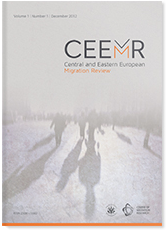The Adaptation Strategies of Highly Skilled Latvian Migrants: The Role of Pre-Migration Cultural Capital and Typical Pathways to Labour-Market Upper Positions
The Adaptation Strategies of Highly Skilled Latvian Migrants: The Role of Pre-Migration Cultural Capital and Typical Pathways to Labour-Market Upper Positions
Author(s): Inese ŠūpuleSubject(s): Social Sciences
Published by: Ośrodek Badań nad Migracjami / Uniwersytet Warszawski
Keywords: highly skilled migration; transferability of human capital; strategies of adaptation
Summary/Abstract: This article analyses the strategies of adaptation used by highly skilled Latvian migrants to make the best of their situation abroad. As empirical data, 26 semi-structured in-depth interviews with highly skilled Latvian nationals in finances, management, IT and the health sector are analysed. The study reveals how migrants negotiate the value of their cultural capital in the new country’s labour market. Different adaptation strategies are typical for the pre-migration phase, the phase of transition and initial settlement and of establishment in the host country. The main conclusion of the study is that pre-migration cultural capital (education, work experience, language knowledge and general and specific skills) is important but not sufficient to be successful in new country’s labour market – in the UK, Germany, Norway and the USA. The labour-market outcomes are a result of the interplay between migrants’ individual resources and decisions on extensive investments in country-specific human capital and structural constraints – such as typical recruitment patterns in a particular occupation and host country.
Journal: Central and Eastern European Migration Review
- Issue Year: 10/2021
- Issue No: 2
- Page Range: 111-130
- Page Count: 20
- Language: English

